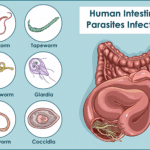The Smarter Way to Boost Thyroid Health and Reclaim Your Energy
Thyroid Health: Getting Your Vitality Back with a Smarter Approach
Let’s face it—when it comes to thyroid health, most people feel lost. This little gland does some heavy lifting, from keeping our energy steady to helping us feel mentally balanced. Yet, like hormone and adrenal health, it’s one of the most misunderstood areas of health. That’s why so many individuals still struggle with brain fog, fatigue, and weight gain, even when their labs indicate they’re “technically fine.”
Today, we’ll explore the often-overlooked factors that influence thyroid health, why conventional testing might miss key issues, and how to provide your thyroid the support it needs to restore energy, vitality, and overall health.
Why Your Thyroid Deserves Some Love
The thyroid, a butterfly-shaped gland at the base of your neck, serves as the command center for metabolism, energy, and overall hormonal balance. It produces hormones—primarily thyroxine (T4) and triiodothyronine (T3)—that regulate how every cell in your body uses energy. When thyroid function falters, the effects ripple throughout your system, causing symptoms like:
- Fatigue and low energy
- Weight gain or difficulty losing weight
- Brain fog and memory issues
- Dry skin and hair loss
- Mood imbalances, such as depression or anxiety
One critical factor often overlooked is the thyroid’s relationship with other hormones, especially progesterone. Progesterone, often called the “calming hormone,” works closely with the thyroid to regulate metabolism and energy production. Low progesterone can reduce thyroid hormone activity at the cellular level, even when thyroid hormone levels appear normal on standard blood tests.
Common Thyroid Pitfalls: Why Standard Testing Isn’t Enough
The frustration many people feel when trying to diagnose thyroid issues often stems from insufficient testing. Conventional screening typically includes only TSH (thyroid-stimulating hormone) and, occasionally, free T4 (inactive thyroid hormone). While these markers are important, they provide an incomplete picture of thyroid health.
- T3 Levels Are Often Ignored:
Active thyroid hormone, T3, is what your cells actually use for energy production. If your T3 levels are low—even with normal T4 and TSH—you may still experience symptoms of hypothyroidism. Studies show that low T3 is linked to fatigue, weight gain, and reduced mental clarity, despite “normal” TSH values. - Reverse T3 Isn’t Monitored:
Reverse T3 (rT3) is an inactive form of T3 that can block the action of active T3. High levels of reverse T3 often indicate chronic stress, inflammation, or poor liver function, which impair your thyroid’s ability to regulate metabolism. - Autoimmunity Is Overlooked:
Up to 90% of hypothyroidism cases in developed countries are caused by Hashimoto’s thyroiditis, an autoimmune condition where the immune system attacks thyroid tissue. Without testing for thyroid antibodies (e.g., TPO and TgAb), this critical cause often goes undiagnosed.
Key Takeaway: A smarter approach includes a full thyroid panel: TSH, free T4, free T3, reverse T3, and thyroid antibodies.
The Thyroid-Gut Connection
Your gut plays a central role in thyroid health, influencing hormone production, conversion, and immune function. Approximately 20% of T4 to T3 conversion occurs in the gut, so a healthy microbiome is critical for maintaining adequate levels of active thyroid hormone.
Leaky Gut and Autoimmunity:
When the intestinal barrier is compromised (a condition known as leaky gut), undigested food particles and toxins can trigger immune responses. This inflammation increases the risk of autoimmune thyroid disorders, such as Hashimoto’s.
Gluten and Thyroid Health:
Research suggests a strong link between gluten sensitivity and thyroid autoimmunity. Gluten contains proteins that resemble thyroid tissue, potentially leading to a phenomenon called molecular mimicry, where the immune system mistakenly attacks the thyroid.
Supporting your gut health with prebiotics, probiotics, and a diet tailored to reduce inflammation can have profound effects on thyroid function.
Smart Strategies to Support Your Thyroid
Getting your thyroid back on track isn’t just about taking a pill—it requires addressing the broader hormonal, nutritional, and lifestyle factors at play.
- Balance Your Hormones:
The thyroid doesn’t function in isolation. Adequate progesterone and cortisol balance are essential for thyroid health. Chronic stress depletes progesterone levels and floods the body with cortisol, impairing thyroid hormone conversion. Adrenal support through stress reduction techniques, like meditation or breathwork, is essential. - Support Nutrient Needs:
Your thyroid relies on specific nutrients to produce and activate hormones. Key players include:- Iodine: Essential for thyroid hormone production, but too much can exacerbate autoimmune conditions.
- Selenium: Protects the thyroid from oxidative stress and supports T4-to-T3 conversion.
- Zinc and Iron: Both are necessary for proper thyroid hormone synthesis and function.
- Vitamin D: Low levels are linked to an increased risk of autoimmune thyroid disorders.
Eating a nutrient-dense diet rich in seafood, nuts, seeds, and leafy greens can help, and targeted supplementation may be necessary in some cases.
- Consider Natural Thyroid Support:
For those seeking alternatives to synthetic thyroid medications, glandular thyroid supplements containing natural T4 and T3 may be an option. Always consult with a healthcare provider to determine if this is right for you. - Ditch the Toxins:
Hormone-disrupting chemicals (like BPA, phthalates, and pesticides) interfere with thyroid function. Minimize exposure by:- Using glass or stainless steel instead of plastic.
- Choosing non-toxic personal care and cleaning products.
- Filtering your water to remove halides, like chlorine and fluoride, which compete with iodine in the thyroid.
- Track Your Progress:
Empower yourself with data! Track your basal body temperature, pulse rate, and symptoms alongside your lab results. Low morning body temperature (below 97.8°F) may indicate suboptimal thyroid function.
The Role of Diet and Exercise
Food is medicine when it comes to thyroid health. A diet that reduces inflammation, stabilizes blood sugar, and supports gut health is key.
Best Foods for Thyroid Health:
- Fatty fish (rich in omega-3s)
- Brazil nuts (selenium)
- Eggs (iodine and selenium)
- Leafy greens and cruciferous vegetables (moderate amounts—cooked to reduce goitrogens)
Exercise and Metabolism:
While intense exercise can suppress thyroid function in stressed individuals, moderate movement like walking, yoga, or strength training boosts metabolism and supports overall energy.
Putting It All Together
The thyroid isn’t just a gland—it’s the centerpiece of your metabolic orchestra, working in harmony with hormones, the gut, and the immune system. Conventional approaches often fall short by focusing narrowly on TSH levels and overlooking the interconnected factors that influence thyroid health.
By adopting a smarter approach—comprehensive testing, a nutrient-dense diet, gut health support, and toxin reduction—you can restore your thyroid’s vitality and, by extension, your own.
- Wiersinga WM. “Thyroid hormone replacement therapy: current status and challenges.” Nature Reviews Endocrinology. 2014;10(3):164-174.
- Zimmermann MB, Boelaert K. “Iodine deficiency and thyroid disorders.” The Lancet Diabetes & Endocrinology. 2015;3(4):286-295.
- Ventura A, et al. “Coeliac disease and the risk of autoimmune disorders.” Gut. 1999;44(5):612-615.
- Benvenga S, et al. “Nutraceutical supplements in thyroidology: A mixed blessing.” Nature Reviews Endocrinology. 2018;14(9):536-549.
- Fasano A. “Leaky gut and autoimmune diseases.” Clinical Reviews in Allergy & Immunology. 2012;42(1):71-78.
Enjoying this content? Sign up for updates... It's FREE!

















